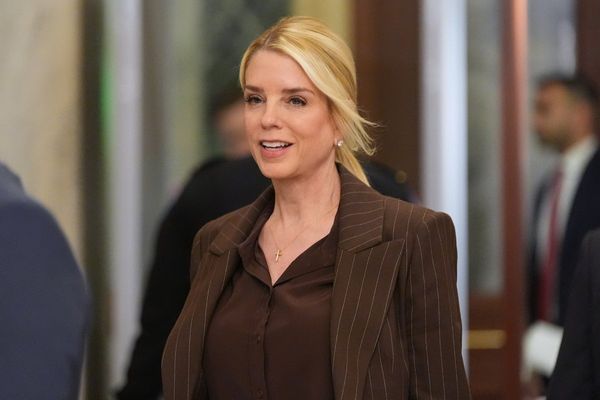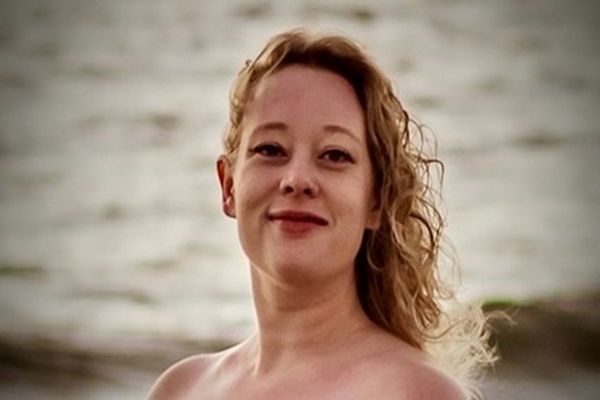
Seven years after Nigeria won independence from the UK – and 15 years into the reign of Queen Elizabeth II – civil war broke out in the former British colony.
On one side was the Nigerian government, desperate to preserve the multi-ethnic state that had been cobbled together by Britain’s colonial administration. On the other were the Biafra separatists who sought autonomy for Nigeria’s Igbo people, an ethnic minority originally from the country’s south who faced persecution and pogroms in the north. With control over Nigeria’s oil production at stake, former colonial superpowers jostled for influence, not least the UK.
In 1967, Nigeria was still a member of the Commonwealth and Elizabeth had remained its head of state – the “Queen of Nigeria” – until 1963. Intent on maintaining influence and control, the UK government, led by Harold Wilson, funneled vast amounts of arms and munitions toward the Nigerian government.
The war was a humanitarian catastrophe for Nigeria’s 52 million people. A year into the conflict, more than a thousand children were starving to death each day. TV cameras beamed images of their anguish – as well as evidence of further wartime atrocities – all over the world. Wilson responded to the public backlash by misleading parliament about the UK’s involvement, even as he increased the flow of arms, declassified documents revealed in 2020. In the wake of the queen’s death, the Nigerian president, Muhammadu Buhari, who fought on the side of the government, praised the royal family as “a very strong ally even in the midst of our difficult time during the Biafran war; they stood for the indivisibility of the Nigerian state, supported and ensured that we overcame that problem”.
At the time, Uju Anya’s mother had two children under 10 and was pregnant with a third. A native Trinidadian who had called Nigeria home for less than a decade, she just missed catching a ride on the last foreign charter plane airlifting refugees out of the war zone. As soldiers took up British-supplied arms against civilians, razing whole villages and scorching ancestral lands, Anya’s mother fled with her in-laws, taking whatever cover they could find.
“We lost half of our relatives,” says Anya, who was born six years later. “That’s the legacy of this war. It was a genocide, a slaughter, a holocaust.”
This was the history weighing on Anya, now an associate professor of applied linguistics at Carnegie Mellon University, when she saw the news of the queen’s imminent death on Thursday. “I heard the chief monarch of a thieving, raping genocidal empire is finally dying. May her pain be excruciating,” she wrote in a tweet to her approximately 70,000 followers. Then she stepped away to teach a graduate seminar on identity and language learning.
Three hours later Anya logged back online only to be greeted with a flood of condemnation, much of it laced with racism and misogyny.
In the beginning, it was nothing she couldn’t handle. But then Jeff Bezos entered the chat. “This is someone supposedly working to make the world better?” wrote the world’s richest man. “I don’t think so. Wow.” Not only did Anya double down on her original wish, she offered up another to the Amazon founder, in Igbo. It roughly translates to: “May everyone you and your merciless greed have harmed in this world remember you as fondly as I remember my colonizers.”

In the subsequent media storm, Anya went from a dissenting voice to a veritable enemy of the west. Her original tweet was taken down by Twitter, and she was locked out of her account. She began receiving a deluge of hateful messages, prompting her to disable the “contact me” box on her personal web page and start screening her calls. Piers Morgan, a fierce defender of the monarchy, called Anya a “vile, disgusting moron”. Scores more have demanded she be fired.
Though she has not faced any formal discipline, Carnegie Mellon did release a statement condemning her tweets as “offensive and objectionable”. “I’m not a stranger to Twitter controversy and draggings,” Anya says. “But this one was of a scale that surprised even me. I imagined there’d be backlash, but how far this thing has reached, I did not figure.”
The royal family’s wealth has been estimated at $28bn; Elizabeth never acknowledged or apologized for the atrocities of colonialism. Anya’s entire life has been shaped by crown rule, starting with her mother’s native Trinidad – a former plantation colony whose land and people were also plundered to enrich the royal family. Her parents, whom she calls “colonial subjects”, met in England as university students. But following the war they in effect split up, and Anya’s mother emigrated to the United States in the 1980s. “The broader impact of the British monarchy, you can look at that in my history,” she says, “in addition to the direct, felt-in-the-skin impact of Queen Elizabeth’s rule. So when I heard that the woman was dying, I rejoiced. Would you not if you heard that your oppressor was dying?”
Twitter is a tricky place for a university professor to vent. But for Anya, who tweets from her personal account, the platform is the rare trove of language and cultural innovation that recognizes Black innovation. “I follow words like ‘whomst’,” she says. “I’ve been looking at the way people are doing, ‘I screamed, I scroomed, I scroomst.’ Morphological changes and new vocabulary are being introduced all the time.”
Anya has not shied from kicking the odd hornets’ nest, either. When the contentious YouTube relationship expert Kevin Samuels died in May, she danced on his “loathsome carcass”. That prompted his legion of supporters to dig up tweets in which she referred to native-born Black Americans as akatas, a term that’s widely considered derogatory. “In my recollection and usage and experience with the word, it’s a very neutral word that literally means ‘African American’,” says Anya. Still, at the time, she apologized, noting, “Perception is reality, and impact outweighs intent. So, although I did not use the word with any intent to slur African Americans, that is what I ultimately did.” She still doesn’t hesitate to deploy other colorful terms when hitting back at antagonists. When a white mother made news for filing suit against her Black biracial son’s middle school for implementing a curriculum that allegedly included critical race theory, Anya tweeted that mothers like her couldn’t truly love Black children. Many took exception to those remarks then, too.
Still, Anya is surprised her rebuke of the queen aroused the attention of Bezos – a man who has sent just 372 tweets since joining the platform in 2008. She suspects it might have something to do with a picture she posted in August of her with Chris Smalls, the worker who successfully unionized an Amazon warehouse. “I 100% believe that’s when it hit Jeff Bezos’s personal radar,” she says. “I’m sure they’re scraping and monitoring mentions of Chris Smalls’s name. And added to the fact that I’m faculty at a university that they financially support.” By that she means the three-year, $2m pledge Amazon made in 2020 to Carnegie Mellon’s Computer Science Academy – which, among other things, provides a free, online computer science curriculum for middle and high school students. (A spokesperson for Bezos refused to comment on the record.)
Y’all I met Chris Smalls! Extraordinary brilliant and powerful young man who unionized Amazon!! ✊🏾✊🏾✊🏾 pic.twitter.com/8sGTcOlIef
— Uju Anya (@UjuAnya) August 20, 2022
Anya is also quick to point out that Black and brown people have been vilified for tweeting ill of the queen, while white Irish people were chanting “Lizzy’s in a box” at a soccer game or circulating a video of Irish youth “doing the Riverdance” as if in celebration of her death, she says. “I see it for what it is: racism. Not only that, I’m a Black woman who’s very vocally left-leaning, who speaks very openly on anti-racism, critical race theory and queer rights. Put it all together, and I’m definitely the juiciest target to rally internet hate.”
In the wake of Carnegie Mellon’s arm’s length statement, Anya has received letters of support from Carnegie Mellon faculty members and students. A third support letter from colleagues at other institutions and the broader community, which has nearly 4,000 signatures, takes particular exception to Bezos, calling his tweets a pernicious “attack against a Black Nigerian-Trinidadian-American Professor, coming from a man that has amassed his wealth through global domination and exploitation without regard for the most vulnerable and precarious humans on our planet. This is, frankly, not dissimilar to the British monarchy’s colonial project – Bezos simply remixed the colonial schema through neoliberal racial capitalism, exploitation, and greed.”
Anya also hastens to note that the chair of Carnegie Mellon’s department of modern languages has been steadfast in her personal and professional support – and even took the extra step of posting a security guard outside a recent department social gathering to ease Anya’s concern for the safety of her and her children.
It’s barely been a year since Anya left a position at Penn State to join the Carnegie Mellon faculty. Though her position is untenured, she’s not especially worried about losing her job. The university was well aware of her tendency for speaking harsh truths to power when they hired her as part of the post-2020 effort to diversify.
Pushback comes with the territory, and Anya remains unchastened through it all. “I’m recognized for being a loudmouth who’s irreverent,” she says. “You don’t know how many times I’ve been called uppity and arrogant. And we all know what that means: ‘nigger’.”
“The assumption is I should not be so assured of myself, given the lowliness of who I’m perceived to be in [my critics’] eyes. This was a ripe opportunity to bring me down a few pegs.”







